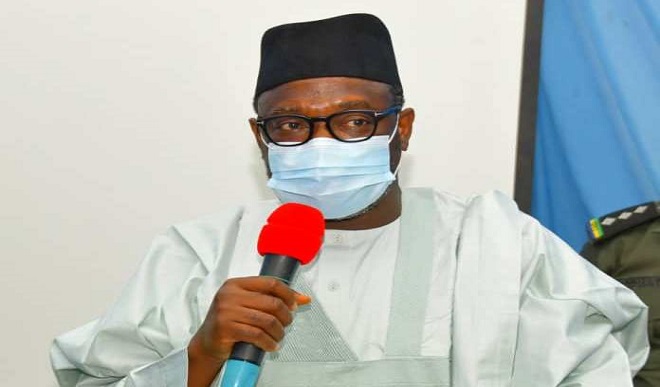Niger State budgets N1.2bn for COVID-19 recovery stimulus
Niger State Government said it has budgeted N1.2 billion for the Nigeria COVID-19 Action Recovery Economic Stimulus (NCARES) for the poor and vulnerable. FADAMA Coordinator in the state, Dr Hassan Garba Kontagora, disclosed this in Minna on Wednesday where he said that the NCARES support is free of charge and meant to bring out farmers […]

Niger state governor, Alhaji Abubakar Sani Bello
Niger State Government said it has budgeted N1.2 billion for the Nigeria COVID-19 Action Recovery Economic Stimulus (NCARES) for the poor and vulnerable.
FADAMA Coordinator in the state, Dr Hassan Garba Kontagora, disclosed this in Minna on Wednesday where he said that the NCARES support is free of charge and meant to bring out farmers and others from the impact of the pandemic.
The Programme, according to Kotangora, would cover the 25 local government areas of the state and is targeted at the poor within the agriculture value chain, the physically challenged persons, the poor and vulnerable with minimal size of farm enterprise and those who have been affected by other crises apart from the pandemic.
“Those who will benefit should be affected by the COVID-19 pandemic or other crisis and their means of livelihood destroyed or disrupted with no means of daily sustenance or feeding.
“Women and youths are highly targeted as they fall into the category of the poor and vulnerable in the society because of lack of or limited access to finance and other resources,” he said.
The coordinator also announced that the NCARES is funded by the federal government, World Bank and state government adding that the total amount to be expended has not been ascertained yet but the state government has already budgeted N1.2 billion for the programme.
He said FADAMA is currently compiling the data of the poor and vulnerable in the 25 local government areas of the state who will be beneficiaries of the project.
Kontagora further said that NCARES is meant to increase food security and address the safe functioning of the food supply chain to the masses.
“Areas of interventions would include distribution of improved seeds, fertilizers and inputs, distribution of livestock inputs, provision of extension services, provision of extension services, provision of mechanization services.
“Others are improvement of existing tertiary irrigation canals, rehabilitation and improvement of existing feeder roads, provision of farm Agricultural assets, improve water and sanitation Infrastructure in wet markets and provision of equipment for small scale food processing and packaging,” he said.
Kotangora said the government expects the beneficiaries to use the support given to them judiciously to improve their livelihood.
